PRESERVING A MILITARY LEGACY FOR FUTURE GENERATIONS
The following Reflections represents LTC Edward Shyloski’s legacy of his military service from 1966 to 2003. If you are a Veteran, consider preserving a record of your own military service, including your memories and photographs, on Togetherweserved.com (TWS), the leading archive of living military history. The following Service Reflections is an easy-to-complete self-interview, located on your TWS Military Service Page, which enables you to remember key people and events from your military service and the impact they made on your life. Start recording your own Military Memories HERE.
Please describe who or what influenced your decision to join the Army.

My father was a WWII vet who admired his country and the Army. I wanted to follow in his footsteps and have never been sorry to do so. My daughter followed mine and became a 4th Inf Division Aviation Company Commander with three sets of wings on her chest, i.e., Aviator, Jump, and Air Assault.
I attended her taking command at Fort Hood, and her 4th Inf Brigade Commander made a big deal of our heritage of serving the Army through three generations and supporting the 4th Infantry in Vietnam. My daughter’s husband, Andrew Morgado, is now becoming CoS of 8 Army 1 August 2020. We will see what our 4 grandkids do!
I joined not just because of my father being a WWI vet but many of his men were. He owned a general excavation/grading company with much heavy equipment. A number of his operators were vets too. Others were not but respect the vets. I remember his general mechanic, Louis Squires, who had a drinking problem but was always on time, loyal to my father, but although I liked him, I did not have much sympathy for his alcoholic issue. But then later, when he died, I remember a friend sending his obituary to me: Louis Squires, WWII bombardier!!!!!! Oh, my God, was I ashamed of myself. So very ashamed that I told others of my shame. How dare I make such a judgment. But this was shortly after Vietnam.
I joined because, in high school, I was looking for a university where I could attend ROTC, but I did not want to be in just any university, i.e., UMass nor Worcester Poly Tech. I wanted a place to study that had a heritage for the military. The federal academies may not have been out of reach for me. Still, I did not apply because the college relations counselor invited a uniformed cadet from Norwich University to speak. He was also a civil engineering student. Norwich University became my first choice. I graduated high school in 1962 and Norwich in 1966, where almost all 247 of my classmates were commissioned. Next to West Point, it produced the largest number of Army officers next to West Point.
Whether you were in the service for several years or as a career, please describe the direction or path you took. What was your reason for leaving?
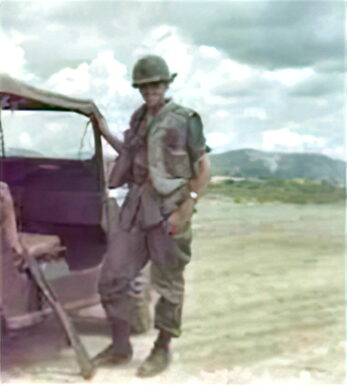
Although I graduated as an ROTC DMG from Norwich University in 1966, I decided not to take a Regular Army commission for several reasons. But then I really enjoyed my assignments first as a 2nd Lt Company Cmdr at Fort Bragg reconstituting the 264th Engineer Company Panel Bridge; then in Vietnam, as 20th Engr Bn Asst Ops Officer (3 mos), 937 Engr Group Const Officer (3 mos), and then as CO, A Co, 20 Engr Bn (5 mos) and especially working for LTC John F. Wall, Bn Cdr who almost convinced me to stay in. (John F. Wall became a 3-star General Officer commanding what the Army Missle Command was and then became the Army Defense Command before his retirement).
My old NU just celebrated its 200th year anniversary last year. I was then indoctrinated within a great society of boys becoming men in values that have not only been inculcated in myself but have been the mainstay at Norwich University for its 200 years. I was elected a DMG, but I trusted my gut not to take the RA commission, as I said in my Reflections. I was more sure of myself than the US Army, which I had not experienced. In my corporate life, I was not a true conformist to any doctrine. I did not take authority for granted, neither in the Army nor in Bechtel or Shaw Stone & Webster. But I respected the US Army structure, and many great NCO’s really shaped my opinions in Vietnam also were especially were key to my decision not to stay in the Army. These NCOs were all Korean veterans and disliked where the Army was headed. The ticket punching among many Army officers there also bothered me greatly.
I left the Army because I really wanted an advanced CE degree. Still, the Army Engineer Personnel Office said to go onto the Advanced Course and do another short tour before going to graduate school in the US Army. I turned that down and went to the Univ. of Mo. CE Masters program on the GI bill and stayed reunited with my wife and 4-month old daughter. Then I joined Bechtel and spent a career starting in nuclear plant design and finishing there as VP Nuclear Construction and enjoyed those 35 years as well.
If you participated in any military operations, including combat, humanitarian and peacekeeping operations, please describe those which made a lasting impact on you and, if life-changing, in what way?

My A Company, 20th Engr Bn, supported Special Forces camps from Ban Don to Ben Het, mines sweeps for 4th Div Arty, convoy mine sweeps between Pleiku and Kontum, built an underground radio station PsyOPs bunker outside Pleiku, built A/C control towers at Camp Holloway and Dragon Mountain Base Camps.
I was saved from injury by the Grace of God from some rocket and mortar fires in Pleiku and, with a 19-day drop, turned over my command in a day and miraculously avoided the Ben Het Special Forces camp conflagration where we were building bunkers and revetments for 4th Div Arty. My driver and others were subsequently KIA between there and Kontum, as I now understand. My best Lieutenant, Timothy Baumgartner, was wounded but survived Ben Het, thank God. Timothy told me that LTC Wall personally picked him up from being released from the Evac Hospital in Pleiku and told Tim he was a real Combat Engineer warrior.
The picture enclosed is our Feb 2020 return trip with my Norwich University senior year roommate, Bob Omasta, and my veteran daughter, Laurie. We are standing on the easternmost of three hills that made up the Ben Het Special Forces camp. The slit trenches were still there, with small shards of sandbags still evident. Bob Omasta served 15 months as an MI BDA (bomb damage assessment) officer. The trip was especially memorable, and Vietnam thrives today even under its Communist Politburo.
Did you encounter any situation during your military service when you believed there was a possibility you might not survive? If so, please describe what happened and what was the outcome.

I did not face such a situation. However, I have recently been able to deliver a sermon on my Vietnam survivor’s guilt.
MY SERMON, MEMORIAL DAY SUNDAY, MAY 24, 2020
MY VIETNAM SURVIVOR’S GUILT
In the name of God, the Father, the Son, and the Holy Spirit!
Good morning:
I want to share with you MY VIETNAM SURVIVOR’S GUILT.
Most veterans are proud of their service. Most instinctively know the meaning of these words: Loyalty, Duty, Respect, Selfless Service, Honor, Integrity, and Personal Courage – These are the values instilled in our military services.
A major reason for the decline in the number of veterans besides age is suicide. The nationwide suicide rate is 123 per day. 1 in 6 suicides is a veteran.
The relationship between our veterans and other American civilians seems to grow more distant with each passing year. Finding common ground between the <1 percent protecting our freedoms and the other 99% enjoying it means this divide has never been more critical, especially since Vietnam and the everlasting wars in Iraq, Afghanistan, and Special Operations against Terror all over the world!
Ever notice in combat documentaries that some expose a soldier’s reactions to learning of a comrade’s death? Such incomprehensible loss, intense emotions, regrets none of us normally cannot forget! We experience the same emotions whenever a death close to us occurs: pain, sadness, grief, and healing. For some, the healing is incomplete.
I still grieve to this day over my comrade’s deaths in Vietnam because I survived by altered circumstances, and they did not. I cannot get my lasting grief out of my mind even after returning to Vietnam, where I spent 17 days last February with my Army veteran daughter and Bob, my senior year college classmate, a 15 month Vietnam vet. We toured the entire country from well below Saigon in the Mekong Delta to all the major cities to Hanoi with three different tour guides who were children growing up during the “American” War there. We stopped at each one of Bob’s and my battlefields along the way and saw others like Khe Sanh.
MY STORY:
Through all the years since Vietnam, I had read extensively one Vietnam War book after another, thinking I HAD TO find something that would help me understand my guilt or was of a major redeeming value that I missed when I served in-country. I remember reading The Cat From Hue by John Laurence, the CBS reporter, who said, “The healthy Marines who were going home look(ed) sorry, as if they were leaving something behind.” Recently, Medal of Honor recipient NAVY SEAL Edward Byers said, “War is not pretty, and it is not kind. A lot of horrific things happen, things that impact you psychologically and emotionally.” That was me! I left for Vietnam in March on Saint Patrick’s Day 1968.

My 12-month date for return was 365 days away. I spent 3 incredible months in the Central Highlands with the 20th Engineer Battalion S-3 Operations flying on helicopters to assess the multiple missions progress of our engineer combat support to the 4th Infantry Division and Special Forces camps. Our battalion combat engineer soldiers performed daily mine sweeps for transport convoys or mobile artillery in and out of firing positions, repairing airfield runways, building and rebuilding, and enlarging artillery bunkers, revetments, and pads for 155mm and 175mm howitzers.
I learned quickly what was incoming versus our outgoing fire. Three months later, I was reassigned to the 18th Engineer Brigade, 937th Engineer Group, outside of Pleiku on Engineer Hill. There I avoided the daily slog of the monsoon season, working again as an operations staff officer, enjoying the Officers Club evenings except for regular duties as a night guard Staff Duty Officer. It was the worst place to avoid B40 rocket attacks and mortar fire where men I did not know were killed or maimed in their cots asleep in hastily-constructed barracks and tents.
With 6 months to go, I went back as A Company Commander, 20th Engineer Battalion (Combat) at Duc Co west of Pleiku. To my surprise, we alone provided our own perimeter security with all the heavy weapons we could muster or barter. We constantly sent up flares one after the other, night after night, to light the perimeter. An order came to break camp and return A Company to Engineer Hill for reassignment performing daily mine sweeps between Pleiku to Kontum; guarding convoys with our own home-base built war wagons mounted with 50 caliber, M60 machine guns, and multi-canister tear gas launchers. Later, our 3 platoons were broken down to squad level, and each went out to separately support Special Forces Camps along the Cambodian border in the spring of 1969.

For five months, my LTs and I became accustomed to miracles. They happened regularly! Whenever my soldiers escaped some danger or whenever some good fortune happened, we called it providential what others would consider common luck. In those 5 months, we lost two soldiers to injuries from a vehicle accident. We sustained no ambushes! No snipers. No men being killed on mine sweeps; no carelessness save the one incident when a mine exploded under a 3/4 ton truck tire but only blew it off the axle. We were whole, but other combat engineer companies were not as lucky. I prayed a lot and counted the days to that 365 days mark for heading home.
In February, with more than a month to go, a CPT Hazen walked into my Command Post and handed me my stateside return orders. He was taking over command. My orders had me leaving the day after next to Cam Ranh Bay, then Fort Lewis, WA, for the active-duty discharge process, and then home.
I left Pleiku basically saying goodbye to no one except the Company clerk! All my LTs were engaged in their missions, and it would have taken days to get to reach them and get back just to say goodbye and good luck. I had a 19-day DROP from Active Duty and one more duffel bag drag!!! I was to serve ONLY 11 months and 11 days!
I made it! After relocating back stateside and retaking a civil design engineer job, it was surreal. But, NO one AT ALL at work cared about the news headlines about Vietnam. Sometime after my return, the A Company First Sergeant wrote to update me. We had many enlisted KILLED IN ACTION, and an LT, and an SGT were in bad shape, having been “dusted off” by air ambulance to the Pleiku EVACuation Hospital. In my mind, that LT had to be Timothy Baumgartner from Illinois. He was special! He and SFC John Lee were the mine sweeping gurus!

Later, I received obituary notices from Norwich University, my alma mater, about my two classmates: John Godfrey, our 1966 magna cum laude, who died during Tet FEB 68 as an Advisor to South Vietnamese troops. And in AUG 1970, CPT Steven Douglas Carr died when setting his air assault helicopter set down on a mine. America had long past given up on Vietnam after the Tet of 1968. Force reduction was underway. What a total waste! I wept!
Because of LinkedIn, a few weeks ago, my former LT Timothy Baumgartner found me and called me. For over 3 hours, we talked, and at times both of us cried.
Tim updated me on the action I had missed by leaving early. Yes, he was hit by B40 rocket fragments at Ben Het Special Forces Camp during the NVA invasion, repulsed by B52s. SGT Greene was wounded and later killed south of Kontum. And, yes, 4 engineer soldiers were Killed In Action when a mine sweep team was ambushed. It included my driver, PVT Olson, a wise Oklahoma Indian who joined the Army because a judge said, “Olson, join the Army or go to jail.” PVT Olson was a wise driver who had saved me more than once!
Well, I told you I read many, many books about Vietnam: Street without Joy; Bright and Shining Lie; They Walked Into Sunlight; In Retrospect; Dereliction of Duty; Vietnam: A History; Matterhorn; We Were Soldiers Once? And Young; A Rumor of War; Embers of War; and on and on! But for what reason?
All these years, I had been looking in the wrong place? Not until I started getting Bible Trivia Verse of the Day, I found many applicable Chapters and Verses: Psalm 61:2: “from the end of the earth I call to you that my heart is faint. Lead me to the rock that is higher than I.”
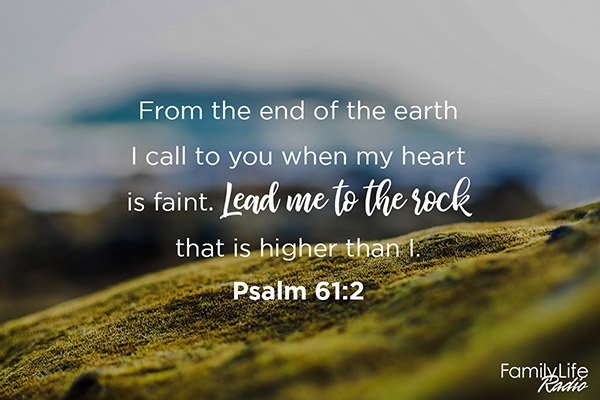
WHY THIS VERSE? IT EXPLAINS: “Loneliness is a strange feeling? The psalmist called out to God for guidance. “Show me the way out. Lead me to something bigger than myself.” A life lived for something of greater purpose tends to take away our loneliness. No matter how you feel, you are never alone.
Joshua 1:9 “The Lord your God is with you wherever you go.”?..When these lonely feelings arrive, I know I can ask God to lead me out. Mark 10:45: “For even the Son of Man came not to be served but to serve, and to give his life as a ransom for many.”
WHY THIS VERSE? IT EXPLAINS: “As we read through the gospel, we will see that many of Jesus’ actions and words were for the benefit of someone else. And if he, the Son of God? The most authoritative being to ever walk this earth? Did not use his authority or privileges to be served but to serve others, we should follow his example. By giving up our time and resources for those around us, we are living as Jesus did.”
All of us are connected in some way! Certainly in grief. But with difficult discussions, allows us to share universal human experiences. Of course, as veterans, we are very proud of our military service, but that pride should not separate us from civilians. Our perspectives on military service may, but our humanity, grief being grief, is a human experience, not a military or a civilian one. Let’s be mindful and teach our youth this guiding principle.
The Bible finally taught me that John Godfrey, Steve Carr, SGT Green, and PVT Olson are smiling in heaven’s Paradise because they served their fellow man unconditionally. I say that because EVERY ONE of our 3 Vietnamese tour guides, Giang, Thuong, and Duong, said in essence, “We know you Americans did not come here to take like the French or the Japanese before them! YOU came to serve!” So help me, God, I NOW know they did! God bless America and God bless our veterans!
CLOSE: Second Corinthians: “The grace of the Lord Jesus Christ and the love of God and the fellowship of the Holy Spirit be with you all.”
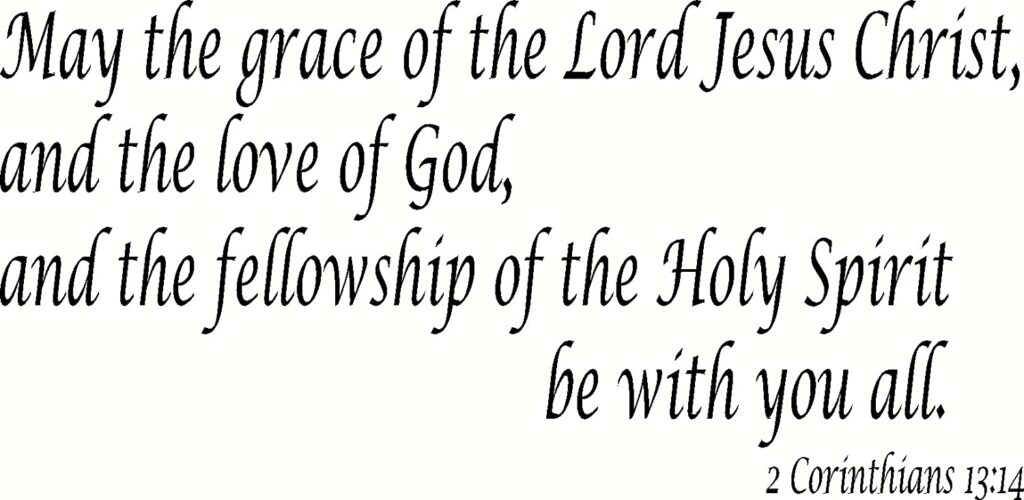
When we arrived in Vietnam last February, everything unrecognizable had changed for the better. I felt a wave of positive emotions that made me stop my searching and stay focused on the greater good currently taking place. E.G. ( 12 of 18 Politburo Members strongly favor the USA and, in point of fact, want the US to base our Navy in one of its ports!) The emotions arising were happiness, excitement, and the new beginnings, which were showing everywhere in a market-driven economy even though the Vietnam government owns all the land, oil, telephone, ports, etc., as in many socialist countries. As we got to experience all of the major cities and countrysides, the economy was booming because it was all about people, food, travel, and color. There was no domineering physical military presence. For example, Ho Chi Minh City, formerly Saigon, is still called Saigon, even in Hanoi.
As we traveled around the country, each one of our three guides intimated or said directly, “in the American War, we know you did not come here take like the French or the Japanese before them or like the Chinese have been doing in Cambodia and Laos for 30 years. We have learned what the “American Dream” is! We want the American Dream here!” The cathedrals were full everywhere! The Taoists even enjoyed their own magnificent compound and amazing architecture. Our time included amazing memories of a bustling nation, surely one free of conspicuous military presence except for war memorials. Vietnam is composed of self-reliant and self-made people who prize hard work and accomplishment, as well as the “American Dream,” said so many times to us.
Of all your duty stations or assignments, which one do you have fondest memories of and why? Which was your least favorite?

Fort Bragg was my fondest duty station because my wife, Nancy, enjoyed her time there when she reconditioned 109 McCaskill Place, our small Army home, as well as enjoying the other officer wives and friends we made in that short time there August 1967 to February 1968.
I remember meeting Nancy at home when she said, “I should consider making the Army my career because she was having so much fun at the 160th Engineer Group wives bonhomies, and I said, “You realize I have my orders for Vietnam!” That was after Thanksgiving 1967. We have been married but 3 months. But she is as gregarious today fortunately after 23 total moves, i.e., 18 permanent business assignments with 5 temporary assignments within those 18 transfers. Now we have lived in one location for the last 19 years. Very fortunate we are.
My time with the 416th Engineer Command was at Fort Dix and Fort Devens, where we assisted the Post Engineer in putting together renovation projects for USAR Reserve Centers. WE VISITED the USAR Centers throughout NJ, PA, and MA to have the normal heating upgrades, roof replacements, pavement, and yard upgrades. We normally took FRAG AT (2 days) with a weekend in order to perform these projects, i.e., perform the site visit, take measurements for the scopes of work, put the specifications together, and then estimate the cost for the Post Engineer to let the bid. It was a great gig because USAR Centers loved seeing us come knocking on their door to meet their needs.
From your entire military service, describe any memories you still reflect back on to this day.

Before I left for Vietnam, I began reading two books recommended to me. They were The Art of War by Sun Zsu and Street Without Joy by Bernard Fall, a French reporter who chronicled the destruction of the Frech Mobile Group 100 on Rte 19 outside An Khe at the Mang Yang Pass, and then the remnants were ambushed again at the pass north of Ban Me Thuot.
It was an easy forecast that we may have had superior firepower, but we could not outlast the historical stamina of Vietnam against its history of invaders. WHY DID IT TAKE 58,000 lives and hundreds of thousands of maimed body and mind soldiers and two long terms of two Presidents to find out we could not? And the eventual weakening of the US Army happened thereafter.
Pitiful leadership by Westmoreland, the best-looking, dumbest Army General we ever produced. His biography declared he had these two books on his bedside table…but he never read them in chronicles. He even avoided most military schools. A dumb SOB! I met one of his aides who were shining Westmoreland’s boots, a Captain. He, too, believed Westmoreland was a sorry individual.
I never knew of Montagnards or the other ethnic groups, Hmong, Muong, Chams, and Tay people, therein Vietnam. It’s obvious why they were the best fighters save the lackluster ARVN because they lived in the jungle and knew how to survive it.
The Montagnards were astonishing to me because they, like the Vietnamese used and honored the timeless land to suit their life purpose and needs. The Vietnamese village culture was truly centered on the circle of seasonal life centered on the rice fields, their families, and honoring the dead by maintaining the tombs. Without that anchor, they knew their lives meant nothing. And we did not understand their culture. The same for the Montagnards is true. They were fine and wanted to be peaceful people but were prepared to defend their way of life. They were certainly more suited to the needs of Special Forces for their guerrilla knowledge of fighting jungle warfare as opposed to any ARVN.
The Montagnards are respectful people. I am glad I spent more time understanding their life cycle when I was last in Kontum Province last February. But back in Vietnam, I was invited to taste their rice wine when our Battalion doctor gave them physical exams and met some of their medical needs. I was invited simply because we came armed with supplies and could see a mindful intent to help them. Like the American Indians, I believe anybody who lives very close to the earth and what it provides is essentially equipped to judge quickly the kindness or the ill-meaning of someone they do not know especially if they have been harmed beforehand.
What professional achievements are you most proud of from your military career?
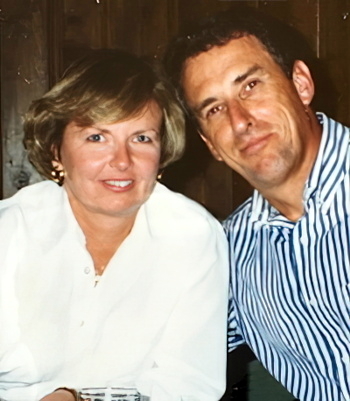
Following my assignment to many Bechtel projects in my civilian career, we had 18 total household moves and 5 temporary assignments within my early government and then corporate life. Thus, I thought I would never achieve 20 years of retirement in the USAR, let alone become an 05. But I did!
I found that if I looked hard enough, there was always an open spot somewhere in the USA for a Reserve officer IF he were to travel the distance. Upon asking why the slot is open, most superior officers told me, “no one wants the time and work it takes!” Thus, my USAR career had fits and starts with many assignments since we moved to many Bechtel megaproject USA sites. Total lifetime moves included 18 permanent assignments with 5 temporary assignments within the 18!
Of all the medals, awards, formal presentations and qualification badges you received, or other memorabilia, which one is the most meaningful to you and why?
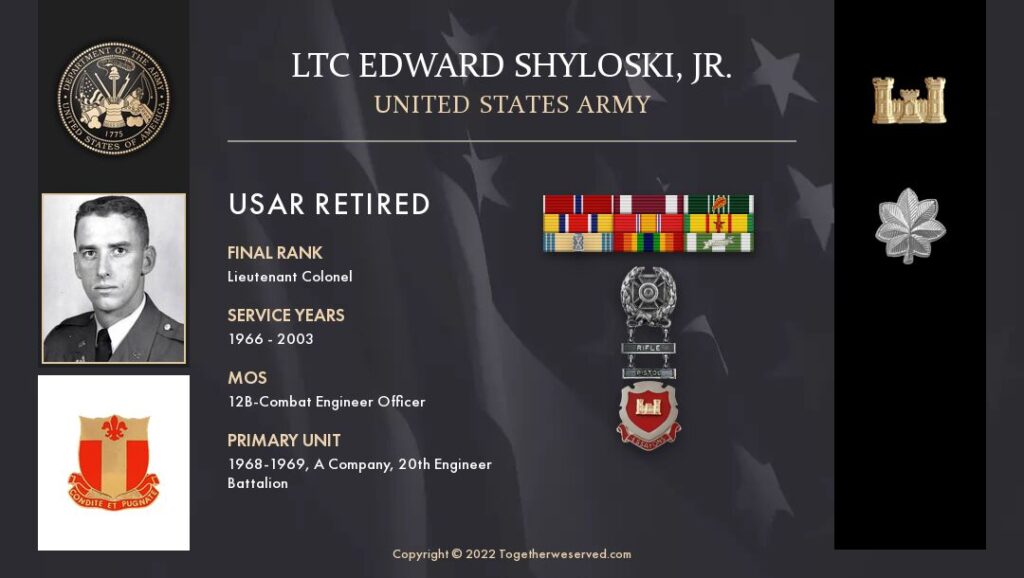
Two
#1, Finishing both the Command and General Staff College diploma 4 Apr 79 and gaining my Army Certificate of Retirement 1 May 2003.
#2, The MSM for distinguished service while HQ Company Commandant at the 412 Engineer Command in Vicksburg, MS. This award is really important to me because it was conferred to me by MG James B. Middleton, 12 Feb 78, who recognized the increased readiness of our HHD and the work we had accomplished to meet his expectations in a mock mobilization to Louisiana.
I did receive a meritorious achievement, Bronze Star, in the mail. That was enough, surely. But I was dismayed that only officers were eligible for the Bronze Star for Meritorious achievement when certainly the Army runs on the extraordinary experience of its dedicated NCOs. They deserved something.
Which individual(s) from your time in the military stand out as having the most positive impact on you and why?

My Vietnam Engineer Battalion Commander, then LTC John F. Wall, West Point grad, Princeton U. Ph.D. Civil Engineer, JD Law Degree all the while making LTG on active duty but then again upon retirement became a degreed practicing minister. Certainly a most amazing leader. I met John F. Wall under the chassis of a 5-ton dump truck with his inspecting it in my motor pool for loose jack bolts! A definite Leader by Example!
Yes, an LTC then on his back under a truck! You cannot do better than that to lead a battalion. He wore his Ranger hat throughout. He was direct but mild-mannered and calm in strife or casual situations. He picked up Timothy Baumgartner from the Evac Hospital in Pleiku, driving Tim himself after Tim was wounded at Ben Het. Tim B tells me LTC Wall told him how proud he was of Tim to have a real “combat” engineer in the 20th Engr Bn (Combat).
My gift also was the wisdom imparted to me from mainly the senior NCOs I encountered who advised me along the way. And I believe most young officers would believe the same Army-wide. MSG Ward L. Simmons, SFC John Lee, and 1SG Joshua Proctor were some of the best advisers I was blessed with.
List the names of old friends you served with, at which locations, and recount what you remember most about them. Indicate those you are already in touch with and those you would like to make contact with.

LT Timothy Baumgartner and SFC John Lee: He was the best LT. He and his Platoon Sgt, John Lee, superbly led their platoon in all types of combat and construction engineer work. They worked harmoniously together, and their team was extraordinary in its attitude and perseverance under the stress of daily mine sweeps and other work crucial to support the 4th Infantry and Special Forces.
LT Gary Cooper from Long Island, a West Pointer, was my Company XO. He was sharp of wit and a handsome figure. He taught me a good lesson in my faith. Gary Cooper was of the Baptist faith and could sing gospel songs eloquently and make quotations from the Bible. He understood others well. He shocked us all when he was transferred to the Special Forces in early 1969. I respected him although we did not see eye to eye on some issues of conduct, and I wished him good luck, good health, and Godspeed!
MSG Ward L Simmons, 20th Engr Bn (Cbt) Operations Sergeant, was my greatest teacher while I was in Vietnam. In the short course of 3 months, he schooled me well. I found him too late in Del Ray Beach, FL.
WO Tom Cullen, Supply, was extremely helpful to me while he was the Supply WO at 160th Engineer Group at Fort Bragg. When I entered the 20th Engr Bn HQ at Dragon Mountain Base Camp, Tom and I were excited to meet again in Vietnam. Tom saw to it that I bunked in the WOPA tent with other WOs. It was the best welcome anyone could have coming in fresh to Vietnam.
I got my notice to leave Vietnam from a West Point Captain, Cpt Hazen. Who handed me my orders to leave, and with a summary MTOE turnover, I went the next day as I recall saying goodbye to nearly no one since I was back on Engineer Hill in Pleiku when all my platoons were deployed elsewhere. And I remember, I had a 19-day drop! That was a gift enough because I had a three-month-old daughter in the USA I had not seen, and I was alive and very well.
My gift was the wisdom imparted to me from mainly the senior NCOs I encountered who advised me along the way. And I believe most young officers would feel the same Army-wide. MSG Ward L. Simmons, SFC John Lee, and 1SG Joshua Proctor were some of the best advisers I was blessed with.
Can you recount a particular incident from your service, which may or may not have been funny at the time, but still makes you laugh?

While serving as CO and reconstituting the 264th Engr Co (Panel Bridge), I filled out the 18th Airborne Corp Readiness Report as being Not Ready in the category of MTOE for the lack of two mobile RT-cranes in order to load, unload, and build Bailey bridges. LTC Murrah, the Engr Group XO, visited me first. He thought I should change my mind, he said. When I said I would not and why he said that my OER might be deleteriously affected. My response was, “I do not eat my OER, sir!” He understood my reason, left, but not without an 18th Airborne Major who came to Group HQ to demand I change the Readiness Report to Ready.
I told him “Ready” may make the Group and the Corps look good, but it is a lie because of the lack of the two most necessary pieces of equipment not on hand (NOH). Therefore, I stood my ground. I realized then that there were no repercussions, but both the Group XO and Group CO, Col Miller, understood and supported my decision. Upon arrival in Vietnam at 20th Engr Bn HQ, I received an ACM for my tour at Bragg. Then I laughed, but it was very serious up until that point.
What profession did you follow after your military service and what are you doing now? if you are currently serving, what is your present occupational specialty?

BSCE and MSCE and Registered Civil/Structural PE in the State of CT. Worked for the Vermont Highway Dept 8 months before Army service as a surveyor and then after Vietnam as a bridge engineer; then worked for Bechtel Group on power plant projects across the USA; then became a troubleshooter taking over bad projects requiring turnarounds until 2006; joined Shaw Stone & Webster at VP Nuclear Construction and reconstituted the department for AP1000 work for 2.5 years; then spent 2.5 years international travel making sales presentions with our partner Westinghouse as well as qualifying international contractors in South America, the Middle East, Europe, sub-Asia, and managing construction personnel assigned in China.
I have been retired in Old Lyme, CT, since 4 Jan 2011 and a part-time consultant to the nuclear industry, ownership, and land sales development in MA.
What military associations are you a member of, if any? what specific benefits do you derive from your memberships?

VFW and American Legion.
Our Lyme-Old Lyme VFW #1467 is a small but mighty “No bar, no building; just Good Works!” mission-oriented organization specifically chartered to assist local veterans in need.
In what ways has serving in the military influenced the way you have approached your life and your career? What do you miss most about your time in the service?

Being a Cadet graduating from Norwich University, the nation’s oldest private military school, now 200 years, it is not just ROTC alone. Still, NU shaped me and equipped me over 4 years to become an effective and recognized leader who wants to make my family, university, and children proud of me.
What I miss most about the Army is the Unity of Purpose I found in such things as SMEAC, i.e., Situation, Mission, Execution, Administration & Logistics, and Command & Control, the 5 part Mission Order. However, it has put me in good stead in my civilian life as well.
It has given me the strength of will to go it alone and prove my planning.
And, I had a great Navy veteran as a civilian mentor who always said, “More important than any plan is your people’s understanding, commitment, and follow-through of the plan!”
I might also say that I read military history constantly book after book. I am near done with the Civil War and WWII but have read about our Vietnam debacle constantly on and off. Currently reading “The Cat from Hue” by John Laurence, who spent 5 years reporting therefrom on CBS as a combat journalist. It is Vietnam from 1965 to 1970 – a great perspective from an absolutely terrific writer. I finished the Phantom of Ben Het and then “Just Another Day in Vietnam” by Col. Nightengale, a fascinatingly descriptive writer.
I miss the very tight camaraderie that is in the US Army family.
Based on your own experiences, what advice would you give to those who have recently joined the Army?
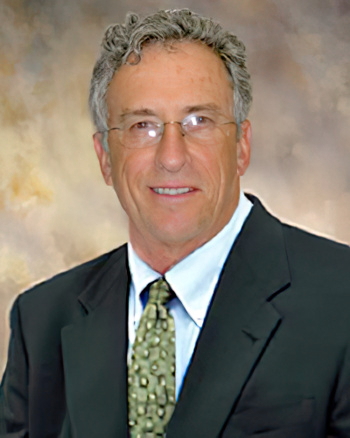
Because my Army Colonel son-in-law and veteran daughter Laurie are on their way back to South Korea for another 2 years after having served already four years in three assignments there, I know by visiting with them and being invited to such an exciting environment that some of the same old recommendations still hold.
My ADVICE: Keep the attitude such that you are learning every day! Consume opportunities available to you. Whether you stay in for a career or decide upon leaving, you will be so much more well-equipped with the right kind of perspective to live and work in almost any environment. Life is never what you expect. Everyone will have their own “Waterloo.” Success cannot come with either small or even great failures personally or by others to whom you have attached your career.
My daughter is a testimony for such, and our grandchildren all appear to be on the right track as well.
In what ways has togetherweserved.com helped you remember your military service and the friends you served with.
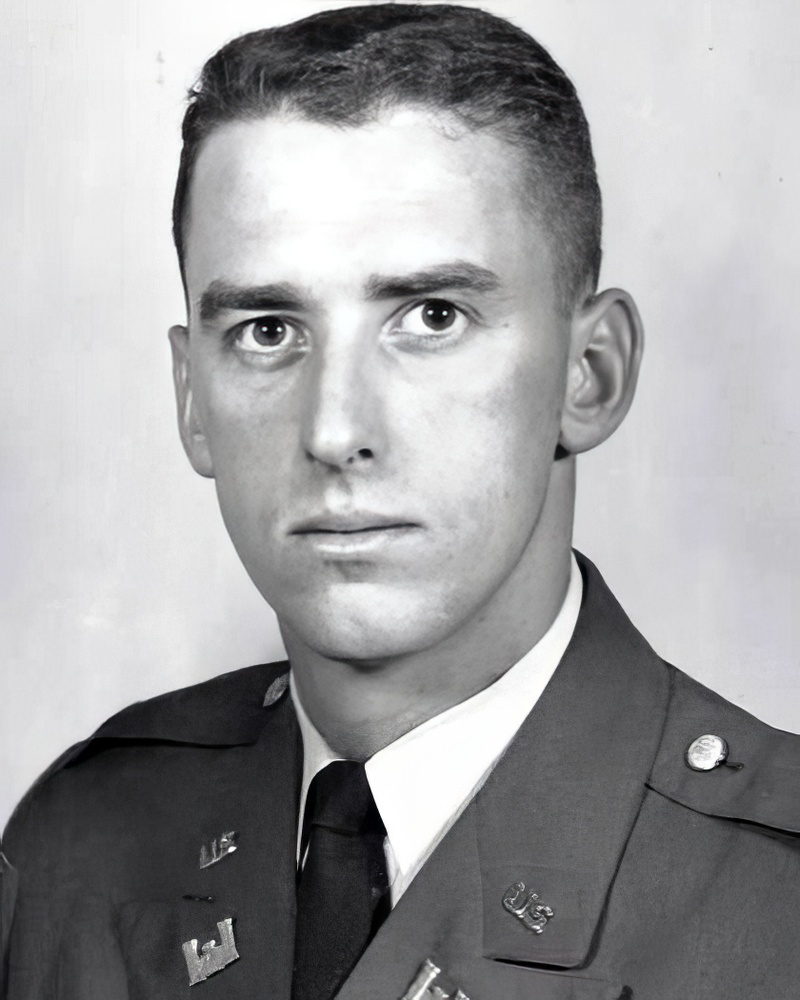
I found out who was KIA after I left Vietnam after 11 months and 11 days. I wept but thank you for that. I also found LT Timothy Baumgartner. We talked for 3 and 1/2 half hours of remembrances and are looking forward to more time.
My best friends are now members of our “No bar, no building VFW,” most of whom are Vietnam era. Still, we have younger members who want to be a part of a no-nonsense veterans organization entirely devoted to helping other vets and its community without the “canteen” distraction costing thousands $ in liability insurance each year for WHAT! So, we are blessed.
The picture below is where we performed a Veterans Day Sunday Flag Tribute 3 years ago.
PRESERVE YOUR OWN SERVICE MEMORIES!
Boot Camp, Units, Combat Operations
Join Togetherweserved.com to Create a Legacy of Your Service
U.S. Marine Corps, U.S. Navy, U.S. Air Force, U.S. Army, U.S. Coast Guard

Your account is fascinating, and so well written it is humbling to read both the battlefield experiences you have endured and the clarity of your descriptions. You have inspired me to submit my memories from WW II and the admiration I have for my father who served 30 years in the Royal Navy and the subsequent decades. Thank you. A.David Barnes, MD, Capt. RAMC; COL, MC, USA (Rtd).
insanityofwars.com